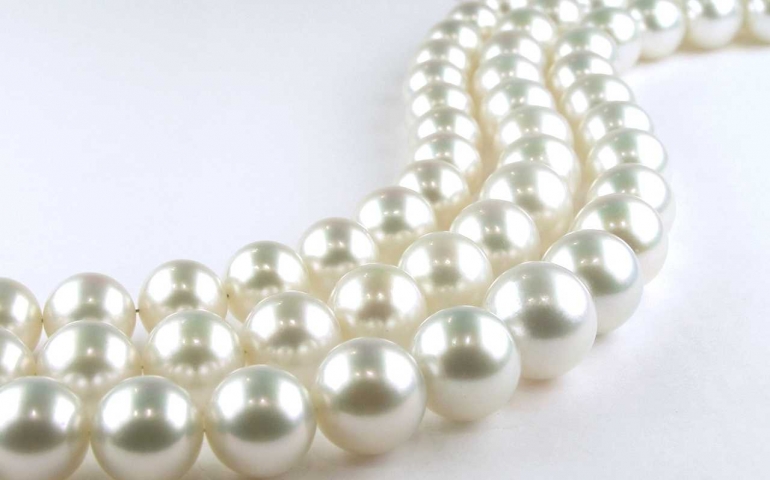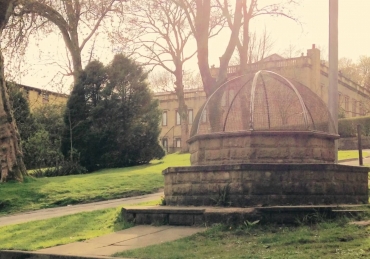Discourses of Muḥaddith al-ʿAṣr Shaykh Muḥammad Yūnus Jownpūrī
بسم الله الرحمن الرحیم
On 25 August 2015, I started a web page online titled ‘Discourses of senior scholars’ featuring some discourses and dictums (malfūẓāt) of Shaykh al-Ḥadīth Mawlānā Muḥammad Yūnus Jownpūrī (d. 1438/2017), Mufti Saʿīd Aḥmad Pālanpūrī (d. 1441/2020) and my respected father Mufti Shabbir Ahmad (b. 1376/1957). Over the years, this page was regularly updated with additional dictums of these luminaries along with other luminaries whose company I was able to benefit from. This page is available online on the following link: https://islamicportal.co.uk/discourses-of-senior-scholars/.
However, as the discourses and dictums of our respected teacher, Shaykh al-Ḥadīth Mawlānā Muḥammad Yūnus Jownpūrī started to increase, a dedicated page was setup for him on 11 February 2016. This page was regularly updated until and after Shaykh’s demise. As I am scheduled to travel to Niger tomorrow, I thought it useful to gather all these discourses from the web page and organise and edit them during the journey and re-publish them for wider benefit.
It is important to make several introductory points:
First, almost all the English quotes in this collection are what the writer heard directly from Shaykh in Urdu or came across in his works. The direct Urdu quotations within the collection are mostly taken from the ‘Malfūẓāt’ book of my dear friend Mawlānā Jābir Pālanpūrī. The source of most of the Arabic quotes are within the collection, some I heard directly and some are transmitted via others.
Second, Urdu readers will find it beneficial to read the Urdu collection of Shaykh’s dictums, which I gathered. They are published in the second edition of the aforementioned ‘Malfūẓāt’ book and can also be accessed on the following link: Malfoozat (Urdu) of Muhaddith al-Asr Shaykh Muhammad Yunus Jownpuri. This is because a translation does not always convey the full essence and message of what is translated.
Third, this collection also features some statements of other luminaries regarding Shaykh.
Fourth, al-Ḥamdulillāḥ, the writer has written several articles on Shaykh and collated many of his discourses. Many are incorporated into the various answers available on our website along with various published and un-published works. Some of the articles online include:
- Valuable advice for graduating students
- Obituary: Muḥaddith al-ʿAṣr Shaykh al-Ḥadīth Mawlānā Muḥammad Yūnus Jownpūrī
- Ten differences between the Arabic and Urdu Ṣaḥīḥ Bukhārī commentaries of Shaykh Muḥammad Yūnus Jownpūrī
- Ten salient features of the Arabic commentary Nibrās al-Sārī ilā Riyāḍ al-Bukhārī by Muḥaddith al-ʿAṣr Shaykh Muḥammad Yūnus Jownpūrī
- Publications, writings and discourses of Shaykh Yunus Jownpuri
- Muhaddithul Asr Shaykh Muhammad Yunus Jownpuri – Memories, Publications, Obituaries
- Shaykh Muḥammad Yūnus Jownpūrī’s view on digital photography
- Fast of 15 Shaʿbān
- Attribution of the weak memory poem to Imām Shāfiʿī
- Entering and exiting the house with right foot
- Spending on the family on ʿĀshūrāʾ
- Will the Sunnah of miswak be fulfilled by using a toothbrush?
- Story of Bilal ibn Rabāḥ (May Allah be pleased with him) returning to Madīnah and giving the adhān
- ʿUmrah from Tanʿīm is not an innovation
- The length of the Kurtā (Qamīṣ) of the Prophet ﷺ
- Ḥadīth regarding the family of the bride feeding people
- Biography of Shaykhul Hadith Moulana Muhammad Zakariyya in Arabic
- In the company of Muḥaddith al-ʿAṣr Shaykh al-Ḥadīth Mawlānā Muḥammad Yūnus Jownpūrī (refer to day 5)
- Biography of Shaykhul Hadith Moulana Muhammad Zakariyya by Muhaddithul Asr Shaykhul Hadith Moulana Muhammad Yunus Jownpuri Sahib
Fifth, to listen to some of Shaykh’s speeches, visit the following link: https://islamicportal.co.uk/shaykh-muhammad-yunus-jownpuri-speeches/.
May Allah Almighty accept this humble effort and make this collection a source of benefit, guidance and inspiration. Āmīn.
Yusuf Shabbir
27 Rajab 1443 / 1 March 2022
Knowledge
“Ṣaḥīḥ al-Bukhārī is an encyclopaedia of Islam.” (Shaykh Muhammad Yunus Jownpuri, India)
“Ṣaḥīḥ al-Bukhārī is a miracle of the Prophet ﷺ. Allah delayed this miracle until the era of Imām Bukhārī.” (Shaykh Muhammad Yunus Jownpuri, India)
“Imām Bukhārī’s Ṣaḥīḥ is not merely a collection of narrations. It is an encyclopaedia.” (Shaykh Muhammad Yunus Jownpuri, India)
“All the published versions of al-Adab al-Mufrad of Imām Bukhārī appear to be incomplete.” (Shaykh Muhammad Yunus Jownpuri, India)
“Acquire Adab (etiquette), you will be blessed in your knowledge.” (Shaykh Muhammad Yunus Jownpuri, India)
“Generally, people have a view and search for evidence accordingly. I review all the evidence and then form a view.” (Shaykh Muhammad Yunus Jownpuri, India)
“When you come across a Ḥadīth that has been transmitted in Ṣaḥīḥ al-Bukhārī, you must read Fatḥ al-Bārī, for Ḥāfiẓ Ibn Ḥajar is the leader of this science.” (Shaykh Muhammad Yunus Jownpuri, India)
“I read the entire Musnad ʿĀʾishah of Musnad Imām Aḥmad four times in pursuit of one particular word in a Ḥadīth.” (Shaykh Muhammad Yunus Jownpuri, India) [This is a reference to the Ḥadīth which begins with حبب إلي النساء, refer to Shaykh’s treatise on this in al-Yawāqīt al-Gāliyah].
“Knowledge does not increase merely by teaching; it increases by extensive Muṭālaʿah (study) of books.” (Shaykh Muhammad Yunus Jownpuri, India)
“Utilise your spiritual, intellectual and physical energy in the pursuit of the science of Ḥadīth.” (Shaykh Muhammad Yunus Jownpuri, India)
“I cannot describe how much attachment I have with the Aḥādīth of the Prophet ﷺ.” (Shaykh Muhammad Yunus Jownpuri, India)
“It was the practice of Ḥadīth scholars to apply ʿItr (perfume) before narrating Ḥadīths.” (Shaykh Muhammad Yunus Jownpuri, India)
“When Ḥāfiẓ Zaylaʿī and Ḥāfiẓ Ibn al-Mulaqqin use the term Garīb, they mean Garīb al-Wujūd not just Garīb al-Isnād.” (Shaykh Muhammad Yunus Jownpuri, India)
“Teachers of Ṣaḥīḥ Muslim should read al-Muʿlim of Māzirī, Ikmāl of Qāḍī [ʿIyāḍ], Ikmāl Ikmāl of Ubbī and Mukammil al-Ikmāl of Sanūsī multiple times.” (Shaykh Muhammad Yunus Jownpuri, India)
“Hidāyah (the famous Ḥanafī book) is a very blessed book and has widespread acceptance.” (Shaykh Muhammad Yunus Jownpuri, India)
“One should read Sīrah of Ibn Hishām. He is an early scholar who narrates from Ibn Isḥāq with Sanad.” (Shaykh Muhammad Yunus Jownpuri, India)
“I acquired the science of Ḥadīth from ʿAllāmah Ibn Taymiyyah, Ḥāfiẓ Dhahabī, Ḥāfiẓ Ibn Kathīr, Ḥāfiẓ Ibn al-Qayyim, Ḥāfiẓ Ibn Rajab, Ḥāfiẓ Ibn ʿAbd al-Hādī, Ḥāfiẓ Zaylaʿī and Ḥāfiẓ Ibn Ḥajar.” (Shaykh Muhammad Yunus Jownpuri, India)
“I benefited greatly from the following books: Minhāj al-Sunnah, Tadhkirat al-Ḥuffāẓ, Mīzān al-Iʿtidāl, Tafsīr Ibn Kathīr, al-Bidāyah wa al-Nihāyah, Zād al-Maʿād, Sharḥ Ibn al-Qayyim ʿalā Sunan Abī Dāwūd, Sharḥ ʿIlal al-Tirmidhī, al-Ṣārim al-Munkī, Naṣb al-Rāyah and Fatḥ al-Bārī.” (Shaykh Muhammad Yunus Jownpuri, India)
“When بر الوالدين للبخاري was published recently for the first time, Shaykh Yunus Ṣāḥib was overwhelmed and kissed it. This is authored by Imām Bukhārī on the obedience of parents.” (Mufti Shabbir Ahmad, UK)
“Shaykh Yūnus Ṣāḥib advised me: Always refer to the original source.” (Mufti Shabbir Ahmad, UK)
“I have been unable to locate the Asānīd from Khaṭīb Tibrīzī to the authors of the books he cites ḥadīths from.” (Shaykh Muhammad Yunus Jownpuri, India)
“There is no contradiction in Ṣaḥīḥ Ḥadīths at all.” (Shaykh Muhammad Yunus Jownpuri, India)
“Approximately 75% of Hadiths are weak. In Ṣaḥīḥ Ḥadīths, there are no contradictions.” (Shaykh Muhammad Yunus Jownpuri, India)
“The term Mashāyikh can be said with Mashāikh or Mashāyikh but Mashāyikh is preferred.” (Shaykh Muhammad Yunus Jownpuri, India)
قال يوسف شبير أحمد البريطاني: قال ابن خزيمة: لا أعرف أنه روي عن النبي صلى الله عليه وسلم حديثان بإسنادين صحيحين متضادين، فمن كان عنده فليأتني به لأؤلف بينهما، انتهى. وهكذا كان شيخنا محدث العصر محمد يونس الجونفوري يجزم بأنه لا تعارض بين الأحاديث الصحيحة۔
وقيل لشيخنا محمد يونس الجونفوري: إن شيخا جليلا من أقرانه قال: ليس العلم بكثرة الأسانيد، فقال شيخنا: صحيح، لكن هذا يدل على أنه ليس له ذوق المحدثين.
وقال شيخنا محمد يونس الجونفوري: جعْل ما ليس بسنة سنة عين البدعة۔
وزار شيخنا محمد يونس الجونفوري الشيخ محمد عوامة، فنصح أولاده بالاستفادة منه وقال: لن تجدوا مثله.
يقول شيخنا محمد يونس الجونفوري في اليواقيت الغالية (١/٤٧): العراقي يتجنب الحكم بالوضع كما علمت باستقراء كلامه
قال الشيخ محمد سيث: قال شیخنا محدث العصر: المرسل إذا لم يكن في الباب غيرُه فهو حجة، وإذا كان هناك تعارض بين الموصول والمرسل، فالموصول مقدَّمٌ، انتهى۔
وقال لما ذكر له أن تهذيب مشارق الأنوار سيطبع قريبا: ان بقيت حيّا فأبلغوه الي، وان مت فتصدقوا به عني۔
وقال: أوصيك بالاشتغال بالحديث، ففيه كل العلوم، وانا أحب الحديث۔
وقال: خاطب زوجتك مع الناس بكنيتها.
وقال الشیخ محمد وائل الحنبلي: سألتُ شيخَ الحديث مولانا محمد يونس الجونفوريَّ رحمه الله في ذي الحِجة عام ١٤٢٢ عن الصلاة أو السلام على علي بن أبي طالب وفاطمةَ رضي الله عنهما، ووجودِ ذلك في صحيح البخاري ؟ فأجابني على الفور: تتبعتُ في ذلك كثيرا من نسخ البخاري القديمة، وكذلك في نسخ شروحِه فوجدت هذا موجودًا في أصل الصحيح. وهو مذهب الإمام البخاري في جواز ذلك، وهذا مذهبُ بعض أئمة السلف أيضًا۔
وقال الشيخ محمد وائل الحنبلي: حدثني الأخ المسند المفيد ابنُ عبد الملك عاشور، عن مولانا شيخ الحديث محمد يونس جونفوري أن المحدثين يتوسَّعون في الرواية، ويُضيقون في النقد، انتهى۔
حضرت مولانا محمد یونس جونپوری رحمۃ اللہ علیہ نے ارشاد فرمایا: دو چیزیں انسان کو ہدایت پر قائم رکھنے میں مددگار ثابت ہوتی ہیں (۱) علم صحیح (۲) صحبت صالح۔
حضرت مولانا محمد یونس جونپوری رحمۃ اللہ علیہ نے ارشاد فرمایا: مطالعہ بڑی گہرائی وگیرائی کے ساتھ کیا کرو،سرسری اور کام چلاؤ مطالعے کا مزاج مت بناؤ، ورنہ سہل پسندی کے عادی بن جاؤ گے۔
حضرت شیخ مولانا یونس جونپوری رحمۃ اللہ علیہ نے ارشاد فرمایا: ارے بچے، ملفوظات تو بس حضرت اقدس تھانوی کے ہیں (ملفوظات ص ٤)۔
حضرت شیخ مولانا یونس جونپوری رحمۃ اللہ علیہ نے ارشاد فرمایا: آپس کے اختلاف چھوڑو، یہ سب مدارس ایک ہیں، اللہ ایک ہیں، اللہ کے نبی ایک ہیں، اللہ کا دین ایک ہے، اس لئے یہ سب مدارس ایک ہیں، ہم تو سب کو باعث خیر سمجھتے ہیں (ملفوظات ص ۶۱)۔
حضرت شیخ مولانا یونس جونپوری رحمۃ اللہ علیہ نے ارشاد فرمایا: پہلے جب ہمارے اکابر کو اجازت دی جاتی تو وہ اس کو چھپاتے تھے (ملفوظات ص ۶۳)۔
حضرت شیخ مولانا یونس جونپوری رحمۃ اللہ علیہ نے ارشاد فرمایا: بچو، کسی کو حقیر نہ جانو، کیا معلوم اللہ کے یہاں اس کا مرتبہ کیا ہے (ملفوظات ص ۶۳)۔
حضرت شیخ مولانا یونس جونپوری رحمۃ اللہ علیہ نے ارشاد فرمایا: ہر بات کو تول کر بولو (ملفوظات ص ۶۴)۔
حضرت شیخ مولانا یونس جونپوری رحمۃ اللہ علیہ نے ارشاد فرمایا: کسی بھی استاذ کے سامنے کسی طالب علم کی شکایت نہ کرو (ملفوظات ص ۶۵)۔
حضرت شیخ مولانا یونس جونپوری رحمۃ اللہ علیہ نے ارشاد فرمایا: بچو، میں تمہیں نصیحت کرتا ہوں کہ ابھی سے تہجد کی عادت ڈالو اور ابھی نیک اعمال کی عادت ڈالو (ملفوظات ص ۶۵)۔
حضرت شیخ مولانا یونس جونپوری رحمۃ اللہ علیہ نے ارشاد فرمایا: بچو، نیک لوگوں سے اپنے لئے دعا کرواؤ (ملفوظات ص ۶۱)۔
حضرت شیخ مولانا یونس جونپوری رحمۃ اللہ علیہ نے ارشاد فرمایا: بچو، غلو کسی بھی چیز میں مت کرو (ملفوظات ص ۶۹)۔
شیخ الحدیث مولانا محمد یونس جونپوری نے ارشاد فرمایا: تعمیر کی فکر نہ کرو، تعلیم کی فکر کرو، آج کل لوگوں نے مدارس کو شہرت اور نام ونمود کا اڈہ بنا رکھا ہے۔
حضرت مفتی شبیر احمد صاحب ارشاد فرماتے ہیں: حضرت شیخ مولانا یونس صاحب نے مجھ سے فرمایا: ہمیشہ اصل مرجع دیکھو۔
شیخ الحدیث مولانا محمد یونس جونپوری ارشاد فرماتے ہیں: دنیا مین کوئی فرد بشر ایسا نہیں ہے کہ جس کے متعلق یہ دعوی کیا جا سکے کہ رسول اکرم ﷺ کی ساری حدیثوں کا اس نے احاطہ کر لیا ہے اسکے علم سے باہر کوئی حدیث نہیں ہے، چاہے وہ حضرت امام احمد ہوں یا امام بخاری ہوں (الفیض الجاری ص ۳۲۱)۔
شیخ الحدیث مولانا محمد یونس جونپوری نے ارشاد فرمایا: افسوس یہ ہے کہ فِی زمانہ جس چیز کی ضرورت ہے اس سے تغافل کر لیا گیا اور ان فرعی مسائل مین اُلجھے ہوئے ہیں حالانکہ سلف صالحين میں یہ سب صورتيں تھیں، کوئی کسی پر عمل کرتا اور کوئی کسی اور پر، پھر ایک دوسرے کی تعظيم وتكريم ہوتی تھی۔
Personalities
“Ḥāfiẓ Ibn Ḥajar is a great Muḥaqqiq. He opened the door of Ḥadīth commentary via Ḥadīth.” (Shaykh Muhammad Yunus Jownpuri, India)
“Imām Nawawī and Imām ʿĀrif Ibn Abi Jamrah are two great Sufi saints.” (Shaykh Muhammad Yunus Jownpuri, India)
“Ḥāfiẓ Mugaltāya’s books are extremely beneficial.” (Shaykh Muhammad Yunus Jownpuri, India)
“[Mawlānā] Muḥammad Dīdāt is علامة الكتب (ʿAllāmah of Books). To find such a person is very difficult.” (Shaykh Muhammad Yunus Jownpuri, India)
“Imām Ibn Ḥibbān is an ocean of knowledge.” (Shaykh Muhammad Yunus Jownpuri, India)
“Imām Ibn Taymiyyah is an Imām of the world.” (Shaykh Muhammad Yunus Jownpuri, India)
“Mawlānā Asʿadullāh Ṣāḥib would say: In undertaking criticism of Imām Abū Ḥanīfah, Imām Daraquṭnī will be rewarded.” (Shaykh Muhammad Yunus Jownpuri, India)
“Mawlānā Asʿadullāh said to me twice: A time will come when your sayings will regarded as evidence.” (Shaykh Muhammad Yunus Jownpuri, India)
“The blessed existence of Mawlānā Asʿadullāh would remove my grief. He would say: ‘I will make Duʿāʾ and this would suffice.” (Shaykh Muhammad Yunus Jownpuri, India)
“Al-Fākihī has authored Akhbār Makkah. It is a very blessed book. Ḥāfiẓ Ibn Ḥajar also praises it.” (Shaykh Muhammad Yunus Jownpuri, India)
“Mawlānā ʿAbd al-Ḥayy Laknawi is a very big scholar, such that scholars like Shaykh ʿAbd al-Ḥayy al-Kattānī praise him.” (Shaykh Muhammad Yunus Jownpuri, India)
“The author of Ghāyat al-Maqsūd is extremely intelligent. His commentary has aspects not found in Badhl al-Majhūd.” (Shaykh Muhammad Yunus Jownpuri, India)
“Correct view regarding Imām Abū Ḥanīfah: He is Tābiʿī by Ruʾyah (he saw Ṣaḥābī) not by Riwāyah (did not hear Ḥadīth directly)” (Shaykh Muhammad Yunus Jownpuri, India)
“ʿAllāmah Ibn al-Humām is the barrister of Ḥanafīs.” (Shaykh Muhammad Yunus Jownpuri, India)
“Ḥāfiẓ Patel Ṣāḥib is Mustajāb al-Daʾawāt (His Duʿāʾs are readily accepted).” (Shaykh Muhammad Yunus Jownpuri, India)
“Muḥaddith al-ʿAṣr Shaykh Yūnus Jownpūrī describes Mawlānā Qāsim Nānotwī: إمام المتأخرين في بلادنا حجة الإسلام النانوتوي (Nibrās al-Sārī, 1:191).” (Yusuf Shabbir)
قال يوسف شبير أحمد البريطاني: قال محدث العصر شيخنا محمد يونس الجونفوري: العارف ابن أبي جمرة لا يحب الزمخشري لاعتزاله، وأنا أحبه لا لأنه حنفي بل لأنه محدث۔
ولقب شیخنا محدث العصر محمد يونس الجونفوري الشيخ المحقق شعيب الأرنؤوط بالعلامة ، انظر اليواقيت الغالية (٤/٦٨)، وأخبرني بعض تلاميذه أنه قال وبين يديه تحقيق الشيخ الأرنؤوط على مسند الإمام أحمد: إن هذا الرجل عالم فهامة، سافر الدنيا فيعلم ما فيها، ولكلامه أهمية۔
وأخبرني مولانا محمد شيث عن محدث العصر شيخنا محمد يونس الجونفوري قال: الحافظ ابن حجر له جودة في التعبير۔
وقال: الإمام الشافعي كان في غاية من جودة الذهن ، وما رأيت أحدا من الأئمة في المنام إلا الشافعي، رأيت في المنام أني أرجع من المدرسة فرأيته عند القطار، فسألته هل لك من سلسلة الأولاد؟ فقال: سلسلة الأولاد من جهة البنات۔
وقال: ما غضب النبي صلى الله عليه وسلم على عائشة إلا مرة واحدة فى حق خديجة، خديجة لها فضل على الأزواج ثم لعائشة فضل، وأحسن ما قيل فى ذلك قول ابن تيمية: فضل خديجة للتقدم فى الاسلام وفضل عائشة لكثرة علمها ، لكن خديجة خديجة ، عاش معها خمسة وعشرين سنة ولم ينكح أحدا ما دامت حيا، ومرة رأيت عائشة رضي الله عنها فى المنام فى بيت مولانا أسعد الله مدير الجامعة وهى مضطجعة وأنا راقد، فتأولت ذلك أن علمها سينتقل إلى، ثم سكت الشيخ قليلا وقال: لكن ليس عندى شيء۔
وقال: ابن عبد البر مرجع الكل۔
وقال: ابن المبارك مجمع على صحته وامانته وديانته وحفظه وجهاده وكله. ثم أنشد الشيخ: يا عابد الحرمين لو أبصرتنا، لعلمت أنك في العبادة تلعب۔
وقال: البخاری كان رجلا ذكیا فى غاية من الذكاء۔
وقال: الحافظ ابن حجر صرف دهره فى شرح البخارى وفرغ نفسه، وأما نحن فمشغول فى الدروس، مرة واحدة درست ستة ساعات من أول النهار إلى اثني عشر. وأول من فعل كذلك العلامة الكشميرى لكثرة حفظه كأنه يلقى العلم من حفظه۔
وقال: كتب ابن القيم مثل مدارج السالكين وعدة الصابرين ومفتاح دار السعادة وبدائع الفوائد التي تدل على أنه من الصوفية الصحيحة العشاق۔
وقال: ينبغى لابن خزيمة أن يقال ابن خزانة ، إنه كان خزانة الحفظ والدراية فى علم الحديث والفقه وکان حافظا كبیرا۔
وقال: من قدم النسائي على مسلم في حفظ الحديث ومعرفته لم ينصفه۔
وقال: كل ما كان خلاف الأولى لا يلزم أن يكون مكروها تنزيها، فإن ترك الأولى قد يوجد كمن ترك صلاة الإشراق ولا يقال: إنه ارتكب مكروها، فإن المكروه حكم مستقل يحتاج إلى دليل خاص۔
وقال: لا أحصي ما في الصلاة والسلام على أفضل الأنام من الفوائد والإنعام۔
وقال: قد یظهر شيء من العلم ببركة الطالب، وقد يظهر ببركة الشيخ۔
وقال: لا يجوز الإعتراض على أحد بنية التنقيد بل يكون بنية التنبيه۔
وقال: قال الحافظ ابن حجر (١/١١٦): وقد وقع في رواية أبي فروة التي أشرنا إليها بيان ذلك، فإن أوله كان رسول الله صلى الله عليه وسلم يجلس بين أصحابه، فيجيء الغريب فلا يدري أيهم هو، فطلبنا إليه أن نجعل له مجلسا يعرفه الغريب إذا أتاه، قال: فبنينا له دكانا من طين كان يجلس عليه انتهى. واستنبط منه القرطبي استحباب جلوس العالم بمكان يختص به ويكون مرتفعا إذا احتاج لذلك لضرورة تعليم ونحوه. قال شيخنا يونس المحدث: هو أصل ما جرى في دار الحديث من وضع التخت۔
وقال مولانا محمد شیث: آخر كتاب طالعه شيخنا المحدث: المسند للإمام أحمد الطبعة الجديدة المجلد السابع والشيخ يبحث عن الصحابي عبد الله بن بسر المازني، وروى ابن عساكر (ت ٥٧١هـ) في وصف الصحابي عن حريز بن عثمان قال: رأيت عبد الله بن بسر وثيابه مشمرة ورداؤه فوق القميص وشعره مفروق يغطي أذنيه وشاربه مقصوص مع الشفة، وكنا نقف عليه ننظر إليه ونتعجب له (تاريخ دمشق ٢٧/١٤٩)، والعجب أن الذين رأوا ِشيخنا في شبابه يقولون أن الشيخ كان كذلك، ثيابه مشمرة، وكان من عادة الشيخ إلقاء الرداء فوق القميص، وكان شعره مفروقا، وكان الشيخ يقص شاربه كل جمعة مع المواظبة، سبحان الله۔
وقال: الخلافة لا تدل على الولاية۔
وقال بعض الفضلاء: سمعت الشيخ محمد يونس الجونفوري حفظه الله يحكي هذه القصة في مجلسه بعد صلاة العصر عن الإمام الداوودي الشافعي – ثم وجدته في السير للذهبي والطبقات للسبكي- أنه رحمه الله كان لا تسكن شفته عن ذكر الله، وأن مزيّنًا -حلاقًا- أراد قَص شاربه فقال: أيها الإمام ! يجب أن تسكّن شفتيك، فقال: قل للزمان حتى يسكن۔
حضرت مولانا محمد یونس جونپوری ارشاد فرماتے ہیں: حضرت مفتی محمود صاحب سے سرسید کے بارے میں کسی نے پوچھا، تو مفتی صاحب نے فرمایا: ہر شخص سے اپنی قبر میں اپنے متعلق سوال ہوگا، کیا کسی کی باتیں لے کر کسی کے پیچھے پڑے رہتے ہو؟ کیا معلوم کہ اس کے ساتھ کیا ہوا؟ اپنی فکر کیوں نہیں کرتے۔
حضرت مولانا محمد یونس جونپوری نے ارشاد فرمایا: حضرت تھانوی کے ملفوظات میں علوم ہیں، ان کے ہر ملفوظ میں کوئی نہ کوئی حکمت ونصیحت کی بات ہوتی ہے۔
حضرت مولانا محمد یونس جونپوری نے ارشاد فرمایا: اگر حضرت ناظم صاحب (مولانا اسعد اللہ صاحب) کے برکات دیکھنا ہو تو تنہا مولانا صدیق صاحب (باندوی) کو دیکھ لو۔
حضرت مولانا محمد یونس جونپوری نے ارشاد فرمایا: مولانا علی میاں صاحب (ابو الحسن علی ندوی) اس زمانہ کے سب سے بڑے مؤرخ ہیں، اپنے معاصرین سے فوقیت لے گئے۔
حضرت مولانا محمد یونس جونپوری نے ارشاد فرمایا: ایسا نہیں ہو سکتا کہ ہم لوگ بیٹھے رہیں اور آپ صلی الله علیہ وسلم کی شان میں گستاخی ہوتی رہے۔
Statements of Scholars regarding Shaykh
“I have not seen a scholar in the current era who is more selfless and has least attachment with the world than Muḥaddith al-ʿAṣr Shaykh Yūnus Ṣāḥib.” (Mufti Shabbir Ahmad, UK)
“I saw Shaykh Yūnus Ṣāḥib only a few years ago drinking a cup of Dāl (lentils) after his Dars (lesson) and going to sleep. Such was the simplicity.” (Mufti Shabbir Ahmad, UK)
“Everyone close to Shaykh Yūnus Ṣāḥib thinks that Shaykh liked them the most. This is similar to our beloved Prophet ﷺ.” (Mufti Shabbir Ahmad, UK)
“Shaykh Yūnus Ṣāḥib left his entire personal library as Waqf for Mazahirul Uloom.” (Mufti Shabbir Ahmad, UK)
“Shaykh Yūnus Ṣāḥib returned home for the first time 11 years after enrolling in Saharanpur.” (Shaykh Ayyub Surti, UK)
“Shaykh Yūnus Ṣāḥib has more than 10,000 students worldwide, many teach Ṣaḥīḥ al-Bukhārī.” (Shaykh Ayyub Surti, UK)
“I witnessed Shaykh not eat food for three days because of poverty, instead he persevered in the pursuit of studying books of Ḥadīth.” (Mawlana Nurul Hasan Rashid Kandhelwi, India)
“Shaykh Yūnus Ṣāḥib was blessed with the quality of Idrāk, which is higher than Kashf.” (Shaykh Yusuf Tankarwi, India)
“Two qualities that stand out from the life of Shaykh Yūnus Ṣāḥib: Taqwā and Ittibāʿ of Sunnah.” (Shaykh Bilal Bawa, UK)
“Shaykh Yūnus Ṣāḥib never taught without Muṭālaʿah.” (Shaykh Abdurrahim Limbada, UK)
“Shaykh Yūnus Ṣāḥib never had his eyes on money. He would always be reading ḥadīth books. In ḥadīth matters, we would all say: ask Ḥaḍrat Shaykh Yūnus Ṣāḥib.” (Mufti Ismail Kacholwi, UK)
“There are five unique qualities of Shaykh Yūnus Ṣāḥib: (1) Referring to original sources such as al-Aṣl. (2) Analysing the various chains of Ḥadīths and various editions when deriving from Ḥadīth. (3) Extensive reading. (4) Respect for other schools of thought despite difference of opinion. (5) Broadness in thought.” (Mawlana Khalid Sayfullah Rahmani)
“It appears to us that the knowledge of ʿAllāmah Anwar Shāh Kashmīrī transferred to Mawlānā Muḥammad Yūnus Ṣāḥib.” (Ḥaḍrat Mawlānā ʿAbdullāh Khān, a senior student of ʿAllāmah Anwar Shāh Kashmīrī, who played a pivotal role in the compilation of Anwār al-Bārī)
“Mufti Maḥmūd Ḥasan Gangohī would sometimes send students from Deoband who had completed Iftāʾ to Saharanpur to study Ṣaḥīḥayn with Shaykh Yūnus Ṣāḥib.” (Yusuf Shabbir)
“Ḥājī Sulaymān Nākhudā, Preston has passed away today. May Allah grant him Jannah. Shaykh Yūnus told him 5 months ago: We will meet there now, not here.” (Yusuf Shabbir, 31 October 2017)
“Three features stand out from the life of Shaykh Muḥammad Yūnus Jownpūrī: 1) Following the Sunnah. 2) Sincerity. 3) Attachment with the Ḥadīths.” (Yusuf Shabbir)
View or download Hadrat Shaykh Zakariyya’s letter regarding Muhaddithul Asr Shaykh Yunus Sahib
Quran
“Recite the Quran in Ṣalāh as much as you can.” (Shaykh Muhammad Yunus Jownpuri, India)
“Ḥuffāẓ should recite one Juz of the Quran in Ṣalāh daily. If you cannot read it in one go, split it throughout the day. First this will be difficult then you will not be able to live without it.” (Shaykh Muhammad Yunus Jownpuri, India)
“Shaykh Yūnus Ṣāḥib would recite half Juz of the Quran daily after Ẓuhr Ṣalāh. He was not a Ḥāfiẓ.” (Mufti Shabbir Ahmed Sahib, UK)
“Shaykh Yūnus Ṣāḥib’s view is that on the occasion of completing the Quran, one should recite until the end of Sūrah al-Nās, and when one recites the Quran (tilāwah), then he should recite until Mufliḥūn.” (Mufti Shabbir Ahmed Sahib, UK)
Purity
“I do not approve of Masaḥ (wiping) on cotton socks.” (Shaykh Muhammad Yunus Jownpuri, India as narrated by Mufti Abrar Ṣāḥib)
Salah
“According to one narration from Imām Aḥmad, it is necessary to read a supplication such as رب اغفر لي in between the two Sajdahs. It is important to read this at least so that our Ṣalāh is valid according to all the Imāms.” (Shaykh Muhammad Yunus Jownpuri, India)
Ramadan
“Our Ḥaḍrat Shaykh Mawlānā Zakariyyā never missed attaining [the rewards and benefits of] Laylat al-Qadr in his life because he would always sit in Iʿtikāf.” (Shaykh Muhammad Yunus Jownpuri, India)
Hajj and ʿUmrah
“Upon reaching Makkah, my tiredness goes. Allah has put amazing blessing in the Kaʿbah.” (Shaykh Muhammad Yunus Jownpuri, India)
“Do not just say Madīnah, you can say Ajmer Sharīf so why can you not say Madīnah Sharīf.” (Shaykh Muhammad Yunus Jownpuri, India)
“The penalty for not going Madīnah (from Makkah due to some urgent reason) is to read Durūd all the way from Makkah until you return to Pakistan.” (Shaykh Muhammad Yunus Jownpuri, India)
قال يوسف شبير أحمد البريطاني: حدثني محبي الشيخ أنور نرما أنه كان مع الشيخ محمد يونس الجونفوري رحمة الله عليه في الطواف في رمضان سنة ١٩٨٧م، إذ قال الشيخ لرجل كان واضعا يده على الحطيم: لا يجوز وضع الأيدي على الحطيم أثناء الطواف. فأجاب:الدين يسر. فقال الشيخ: اليسر ما ثبت عن النبي صلى الله عليه وسلم. فسكت الرجل يمشي۔
Marriage and Family Life
“Make three intentions when you marry: (1) Following Sunnah. (2) Increasing Ummah. (3) Protecting chastity.” (Shaykh Muhammad Yunus Jownpuri, India)
“Shaykh al-Ḥadīth Mawlānā Muḥammad Zakariyyā’s advice to his daughter: Muḥaddith al-ʿAṣr Mawlānā Muḥammad Yūnus Jownpūrī mentioned that once one of the daughters of Ḥaḍrat Shaykh Mawlānā Zakariyyā asked her father: ‘What should I do?’ Ḥaḍrat Shaykh replied: ‘What can I tell you! (1) Be obedient to your husband and (2) Keep the family of your husband happy.’” (Yusuf Shabbir)
قال يوسف شبير أحمد البريطاني: قرأت في تعليقات شيخنا محدث العصر محمد يونس الجونفوري على صحيح البخاري أنه قال: الرغبة عن النكاح إن كان جحدا فكفر، وان كانت ترجيحا لفعله على فعل النبي ﷺ من غير تأويل فهذا أيضا كفر، فإن المؤمن لا يرجح فعله على فعل نبيه، وإن كان لسبب مرض أو شغل أو نوع من الأعذار فيعذر۔
Parenting
“Safeguard your children from smoking cigarettes as it is very harmful.” (Shaykh Muhammad Yunus Jownpuri, India)
“Ensure your children do not wear tight trousers and clothes as they reveal the shape of the body.” (Shaykh Muhammad Yunus Jownpuri, India)
Reformation of the soul and Zuhd
“The soul is reformed and purified by adhering to the Sunnah.” (Shaykh Muhammad Yunus Jownpuri, India)
“Contemplate upon your faults and mistakes at all times.” (Shaykh Muhammad Yunus Jownpuri, India)
“No work is achieved without Taqwā.” (Shaykh Muhammad Yunus Jownpuri, India)
“Any work that is done for the sake of Allah, the end result will always be good.” (Shaykh Muhammad Yunus Jownpuri, India)
“Always be suspicious of your intention.” (Shaykh Muhammad Yunus Jownpuri, India)
“Nobody can be safe from Satan’s whispers except he whose heart is overwhelmed with the remembrance of Allah.” (Shaykh Muhammad Yunus Jownpuri, India)
“Migration (Hijrah) totally transforms a person’s life.” (Shaykh Muhammad Yunus Jownpuri, India)
“Taṣawwuf in reality is following the Sunnah with the correct intention.” (Shaykh Muhammad Yunus Jownpuri, India)
“Whoever follows the Sunnah, he does not need to worry about his Dīn or Dunyā. Allah looks after him.” (Shaykh Muhammad Yunus Jownpuri, India)
“Do not waste your time. Always engage in reciting the Kalimah and Durūd.” (Shaykh Muhammad Yunus Jownpuri, India)
“Mawlānā Yūsuf Tankārwī said: I would read Faḍāʾil Aʿmāl aloud in the presence of Shaykh Yūnus Ṣāḥib daily during the month of Ramadan. On one occasion he said: ‘Mia Yusuf, I did not enjoy your reading today. It seems you were lacking in sincerity.’ My beloved Shaykh would always stress the importance of sincerity. So, I asked him, how can one achieve sincerity? اپنے آپ کو ہمیشہ متہم سمجهو (Always suspect yourself). This is the same Mawlānā Yusuf to whom Shaykh once said, ‘Yusuf! I have relied on many students in my knowledge of ḥadīth. However, in my taṣawwuf and sulūk, I have relied solely on you.” (Yusuf Shabbir)
قال محدث العصر شيخنا محمد يونس الجونفوري: السنن فيه كل شيء وكل بركة. وقال: رأيت الله مرة وأراد أن يقبض روحی، فقلت: يا رب لو رددتنى صليت وسبحت فرقدت، وأنا الآن لم أسبح، وأخاف ماذا أقول لله. فبكى ودعا: اللهم أستغفرك اللهم أستغفرك۔
Supplications and Dhikr
“First repent from your sins and then make Duʿāʾ. Imām Bukhārī began the book of Duʿāʾs with chapters of Istigfār and Tawbah.” (Shaykh Muhammad Yunus Jownpuri, India)
“Repent from your sins truly; true repentance is to hate your sins like you hate fire of Jahannam.” (Shaykh Muhammad Yunus Jownpuri, India)
“Undertake Tawbah (repentance) daily before you sleep at night.” (Shaykh Muhammad Yunus Jownpuri, India)
“Durūd should be read at the start and end of all Duʿāʾs. Duʿāʾs are accepted by it.” (Shaykh Muhammad Yunus Jownpuri, India)
“Durūd is the cure for all problems. Read it with sincerity.” (Shaykh Muhammad Yunus Jownpuri, India)
“Tasbīḥ beads are extremely useful, as they serve as a reminder and help a person not to forget.” (Shaykh Muhammad Yunus Jownpuri, India)
“There is no action more Mabrūk (blessed) after Quran and Kalimah Tawḥīd than Durūd Sharīf.” (Shaykh Muhammad Yunus Jownpuri, India)
“If a person teaches Ṣaḥīḥ al-Bukhārī for many years and does not read the morning and evening Adhkār narrated therein, then what Bukhārī has he taught?” (Shaykh Muhammad Yunus Jownpuri, India, a profound quote from someone who taught it for fifty years).
“Be punctual with Masnūn Duʿāʾs. A short Masnūn Duʿāʾ is superior to a long Waẓīfah not from the Sunnah.” (Shaykh Muhammad Yunus Jownpuri, India)
“The evil eye (Naẓar) is averted by saying بارك الله (May Allah bless).” (Shaykh Muhammad Yunus Jownpuri, India)
قال يوسف شبير أحمد البريطاني: قال شيخنا محدث العصر محمد يونس الجونفوري في تخريج حديث ماء زمزم لما شرب له: والعبد الضعيف يرجو الله ما دعا به الحافظ ابن حجر والمحقق ابن الهمام۔
وأخبرني مولانا محمد شيث عن محدث العصر شيخنا محمد يونس الجونفوري قال: في ساعة الاستجابة أقوال ذكرها الإمام الحافظ ابن حجر والمعروف منها قولان، الأول: بين أن يجلس الإمام على المنبر إلى أن يفرغ من الصلاة، وهذا في الحديث الصحيح عن أبى موسى. والثانى: آخر ساعة بعد العصر. ورجح البخاري الأول وبوب عليه في الجمعة۔
وقال: الأدعية كلها ذكر، لأنها كلها ذكر الله والسؤال منه، والثناء على الكريم دعاء۔
وسئل شيخنا محمد يونس الجونفوري عن أسماء الله الحسنى ورأي أبي نعيم أنها مدرجة، فقال: هذا ما ظهر لي أيضا۔
Advice regarding a concise Duʿāʾ
“ربنا آتنا في الدنيا حسنة وفي الآخرة حسنة، وقنا عذاب النار
(O Allah, grant us every good in this world and every good in the hereafter and protect us from the punishment of the fire)
Muḥaddith al-ʿAṣr Shaykh Yūnus Jownpūrī Ṣāḥib explains that this Duʿāʾ is from the Jawāmiʿ al-Kalim of the Prophet ﷺ. The Duʿāʾ is concise and comprehensive and includes every good of this world and the hereafter. He explains that he had attributed this point to himself until he found that Qāḍī ʿIyāḍ Mālikī had written that this Duʿāʾ was from the Jawāmiʿ al-Kalim, so he attributed this to him. Shaykh adds that Qāḍī ʿIyāḍ’s knowledge in the sciences of Ḥadīth as well as his piety and Wilāyah are accepted by all.
Shaykh further adds that that once Mawlānā At-har Ṣāḥib was asked by a person travelling for Ḥajj to prescribe a Duʿāʾ. He mentioned the aforementioned Duʿāʾ. The person commented that this Duʿāʾ is a common Duʿāʾ. Mawlānā At-har Ṣāḥib replied that this is a ‘registered Duʿāʾ’.
Shaykh Yūnus Ṣāḥib would emphasise that this Duʿāʾ should be read frequently. May Allah grant us every good in this world and every good in the hereafter and protect us from the punishment of the fire. Āmīn.” (Yusuf Shabbir)
Current Affairs
“A bit of humility can resolve major disputes.” (Shaykh Muhammad Yunus Jownpuri, India)
“Mawlānā Ṣiddīq Bāndawī would say: Support all Madāris as they are pillars of Islam and put aside your differences.” (Shaykh Muhammad Yunus Jownpuri, India)
“Those who do not regard digital images as Taṣwīr have made a mistake.” (Shaykh Muhammad Yunus Jownpuri, India)
“Many people mention the virtues of Ḥaḍrat ʿAlī (may Allah be pleased with him) and the errors of Ḥaḍrat Muʿāwiyah (may Allah be pleased with him). The best view in this regard is of Imām Aḥmad that read the Ḥadīths as they have come and thereafter exercise silence and continue.” (Shaykh Muhammad Yunus Jownpuri, India)
Etiquette and miscellaneous discourses
“Mawlānā Ṣiddīq Bāndawī said: Forgive without being asked for forgiveness.” (Shaykh Muhammad Yunus Jownpuri, India)
“Knowledge is attained via etiquette: Muḥaddith al-ʿAṣr Shaykh Muḥammad Yūnus Ṣāḥib mentioned today that several years ago he visited Shaykh ʿAbdullāh ibn Aḥmad al-Nākhibī in Jeddah to listen to the Ḥadīth of Musalsal bi al-Awwaliyyah from him. Shaykh Nākhibī was 115 years old at the time. When he was informed that a scholar from India, Shaykh Muḥammad Yūnus is coming, he went outside and stood for 30 minutes waiting to welcome Shaykh and receive him personally. Shaykh said this was his Adab (respect) for the Ḥadīths despite the fact that Shaykh was much younger than him. Shaykh said: ‘Ḥusn Adab sey ʿIlm Ātā Hey” (knowledge is attained through good etiquette) (Yusuf Shabbir, 11 May 2016).
“Use and consume Olive Oil for it has been described as blessed in the Quran and Ḥadīth.” (Shaykh Muhammad Yunus Jownpuri, India)
“Feed your guests with the intention of Sunnah.” (Shaykh Muhammad Yunus Jownpuri, India)
“If Nāẓim Ṣāḥib Mawlānā Asʿadullāh Ṣāḥib saw a fault in a teacher, he would rectify it in private.” (Shaykh Muhammad Yunus Jownpuri, India)
“To protect itself from the punishment of Allah, the Ummah must collectively seek forgiveness from Allah.” (Shaykh Muhammad Yunus Jownpuri, India)
“There will be Oud in Jannah but the best form of perfume is Musk as mentioned in the ḥadīths.” (Shaykh Muhammad Yunus Jownpuri, India)
“I have observed Shaykh Yūnus Ṣāḥib fold his spectacles by folding the left first and then the right, enabling him to unfold the right side first.” (Mufti Shabbir Ahmad, UK)
“To enter and exit the house with the right foot is closer to the Sunnah.” (Shaykh Muhammad Yunus Jownpuri, India) [Click on the following link for more information: https://islamicportal.co.uk/entering-and-exiting-the-house-with-right-foot/.]
“Shaykh Muḥammad Yūnus Jownpūrī explained that the practice of asking saints to place their hands over the heads of adults has come from Hindus. Yes, the Prophet ﷺ did this on children.” (Yusuf Shabbir)
Shaykh’s Adab and Love of the Sunnah
“In my recent visit to the Ḥaramayn, I learnt that Muḥaddith al-ʿAṣr Shaykh Yūnus Jownpūrī Ṣāḥib does not enter the compounds of Jannat al-Baqīʿ and conveys his Salāms from the outside. Shaykh mentioned that he does not feel comfortable in entering Baqīʿ because in the previous times the pathways were much narrow than they are now. It is possible that some of the current pathways were made on top of certain graves of Ṣaḥābah (may Allah be pleased with them). There has not been much Ihtimām (attention) to avoid this. Shaykh said he finds it really difficult to even enter Baqīʿ because many Ṣaḥābah are buried near the entrance.
I also learnt that whilst travelling in Madīnah Munawwarah, Shaykh avoids using the AC and prefers to take in the blessed natural air of Madīnah. Shaykh’s love of the Sunnah is such that despite his weakness, he visits the date trees orchard in Madīnah Munawwarah. When he eats the dates of Madīnah Munawwarah, he does not throw the seeds in the bin but instructs for them to be buried out of respect.
Shaykh has been performing Ḥajj every year for many years. He always resides in Mina on 13 Dhū al-Ḥijjah, which is a Sunnah. Most people leave Mina on 12 Dhū al-Ḥijjah. Despite his weakness and elderly age, he pelts the Satan in the Sunnah time and the Sunnah position irrespective of the busy crowds.
In 2004 before I began the final year of study, I asked Shaykh for some advice. He said when you read the Ḥadīths, read them from the Prophetic lenses; as though the Prophet ﷺ is instructing you. Do not read the them with anyone else’s lenses. This advice is of particular relevance for students and scholars and has always served as a guide.
May Allah Almighty grant us the love of the Sunnah and Madīnah Munawwarah. May Allah grant us death in Madīnah Munawwarah and a resting place in Baqīʿ.” (Yusuf Shabbir, 1 Dhū al-Ḥijjah 1436)







